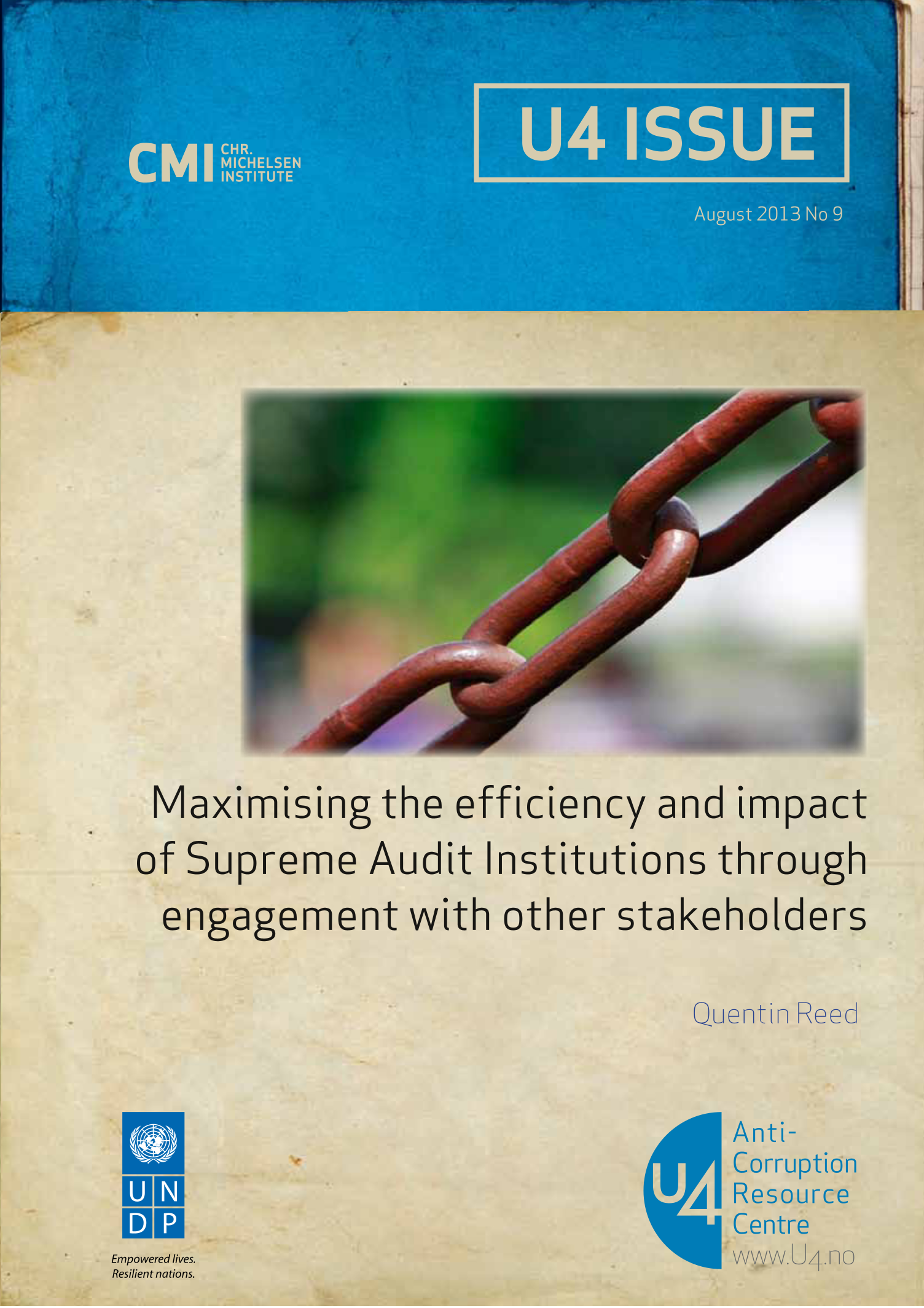U4 Issue
Maximising the efficiency and impact of Supreme Audit Institutions through engagement with other stakeholders
The effectiveness of Supreme Audit Institutions (SAIs) is not determined solely by resources and capacity levels. A range of other factors is of equal importance, including the accessibility and communication of audit reports and findings and interaction with other stakeholders including NGOs and the media. The state audit cycle is a complex, interconnected system, and good practices in one area may not yield expected impact if other components of the audit cycle do not function well. A review of SAIs in Croatia, Macedonia, Montenegro and Slovenia – with a particular focus on their role in overseeing the financing of political parties and political campaigns – shows that engagement with NGOs, parliaments and other stakeholders is essential to a well-functioning audit cycle. Recommendations are provided to ensure optimal engagement with such stakeholders at all stages of the audit cycle – ranging from the need for an open procedure for audit selection to engagement with external counterparts. The paper concludes with suggested actions for donors, including assistance to NGOs to monitor the implementation of SAI recommendations.

Cite this publication
Reed, Q.; (2013) Maximising the efficiency and impact of Supreme Audit Institutions through engagement with other stakeholders. Bergen: U4 Anti-Corruption Resource Centre, Chr. Michelsen Institute (U4 Issue 2013:9)
Disclaimer
All views in this text are the author(s)’, and may differ from the U4 partner agencies’ policies.
This work is licenced under a Creative Commons Attribution-NonCommercial-NoDerivatives 4.0 International licence (CC BY-NC-ND 4.0)

